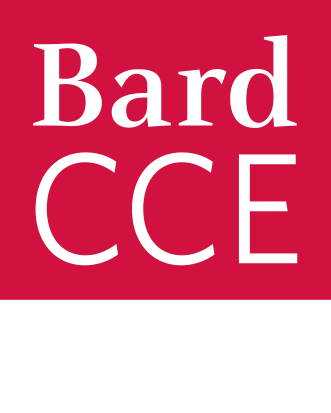The Certificate in Civic Engagement: Connecting with Like-Minded Student Change Makers
Bard alum Megumi Kivuva ‘22, pictured here, was one of the first students to receive the Certificate in Civic Engagement.
“The Certificate in Civic Engagement helped me become a better engaged citizen. Because it couples civic engagement with relevant coursework, I was able to learn more about the communities I serve, the systemic issues they face, and research ways to better serve my community's needs. The program also provided me with a cohort of like-minded student changemakers.”
-Megumi Kivuva ’22
For many years, Bard has offered innovative ways to incorporate civic engagement into the college experience. There are now new opportunities through the Center for Civic Engagement (CCE) and the Open Society University Network (OSUN) that allow students to receive an academic Certificate in Civic Engagement and five other areas, including Global Educational Development, Public Policy and Economic Analysis, Human Rights, Social Enterprise and Leading Change, and Food Studies.
These certificates set the average Bard student apart from others, as it shows up on their final transcript. However, the most beneficial part of this program is that students can get the certificate while completing their degree at Bard. I looked deeper into the Civic Engagement Certificate, but the requirements for the other certificate programs are just as easy to understand and can be found here.
There are over 50 students in the Civic Engagement Certificate program from six OSUN campuses. The Certificate goes beyond Bard and gives students the opportunity to network with other students from Ashesi University, Al-Quds Bard, American University in Central Asia, Bard College Berlin, BRAC University and Central European University.
The Civic Engagement Certificate has three parts. The first part is classes. In order to qualify for the certificate, students have to take four courses while at Bard. These are split into: one core course, two Engaged Liberal Arts and Science (ELAS) courses, and one course that studies the theory of civic engagement. Although these courses may sound intimidating, Bard College breaks it down easily. Students can find FAQ’s about the program here.
The Civic Engagement core course is offered online each spring semester at Bard, and is taught by Jonathan Becker and Eric Cannan from CCE. This summer, students can also apply to take the class in person through the OSUN Summer University in Budapest, Hungary.
Next, the ELAS Classes are typically offered each semester and can be found in the Bard course catalog under a drop down menu for course initiatives that shows different types of classes, including ELAS courses. Each semester, two or three courses fit this title, effectively allowing all students to complete this requirement.
"The theory of civic engagement course requirement allows students to make the case for a specific course they believe fulfills the idea of a civic engagement theory,” says Sarah deVeer, CCE Special Events and Outreach Coordinator. “The course requirement is open-ended and each student can consider a course of interest to them.”
An important part of the certificate is community work. Considering this program is about civic engagement, participating in the community is important. The Civic Engagement Certificate program requires students to complete 100 hours of community service prior to graduation. CCE can help students find ways to complete their hours, including through local outreach events, such as STEM night, MLK day (those hours count too!), Trustee Leader Scholar projects, or a student's personal civic engagement experience at home or nearby Bard.
The final step in the program is an analytic essay. Students tackle this part in two ways: writing an essay about the civic engagement process during junior year, or incorporating civic engagement into one's senior project. DeVeer stresses that this incorporation doesn't mean students should go out of their way, but instead focus on something comes naturally. She notes that the program can help students receive funding to support their senior projects!
Hopefully with this breakdown, the process becomes easier. The deadline to apply isn’t until April 3rd and to apply, students simply need to prove they are making progress toward the Certificate. This looks like completing two of the required courses (not necessarily the core course) and just twenty volunteer hours. The application process can be done in whatever year the student prefers. As long as students meet the requirements by senior year, they can receive the Certificate. It's as easy as that!
If students have questions, they can contact Sarah deVeer at [email protected].
Post Date: 02-17-2023
